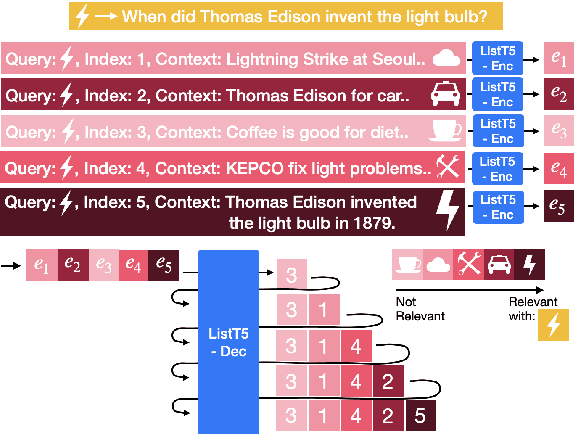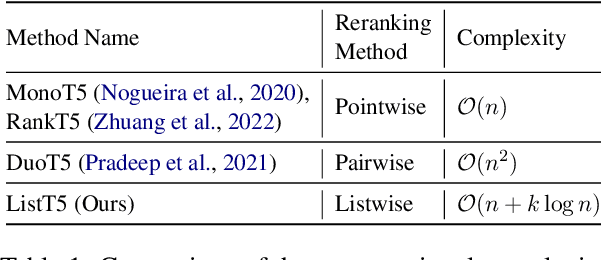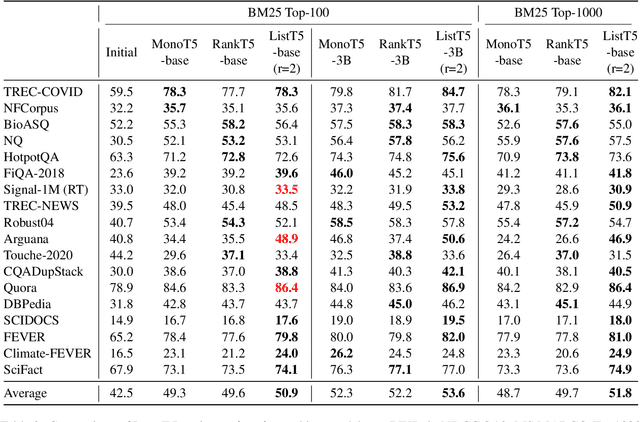Eunbi Choi
K-EXAONE Technical Report
Jan 05, 2026Abstract:This technical report presents K-EXAONE, a large-scale multilingual language model developed by LG AI Research. K-EXAONE is built on a Mixture-of-Experts architecture with 236B total parameters, activating 23B parameters during inference. It supports a 256K-token context window and covers six languages: Korean, English, Spanish, German, Japanese, and Vietnamese. We evaluate K-EXAONE on a comprehensive benchmark suite spanning reasoning, agentic, general, Korean, and multilingual abilities. Across these evaluations, K-EXAONE demonstrates performance comparable to open-weight models of similar size. K-EXAONE, designed to advance AI for a better life, is positioned as a powerful proprietary AI foundation model for a wide range of industrial and research applications.
EXAONE 4.0: Unified Large Language Models Integrating Non-reasoning and Reasoning Modes
Jul 15, 2025Abstract:This technical report introduces EXAONE 4.0, which integrates a Non-reasoning mode and a Reasoning mode to achieve both the excellent usability of EXAONE 3.5 and the advanced reasoning abilities of EXAONE Deep. To pave the way for the agentic AI era, EXAONE 4.0 incorporates essential features such as agentic tool use, and its multilingual capabilities are extended to support Spanish in addition to English and Korean. The EXAONE 4.0 model series consists of two sizes: a mid-size 32B model optimized for high performance, and a small-size 1.2B model designed for on-device applications. The EXAONE 4.0 demonstrates superior performance compared to open-weight models in its class and remains competitive even against frontier-class models. The models are publicly available for research purposes and can be easily downloaded via https://huggingface.co/LGAI-EXAONE.
Reasoning Models Better Express Their Confidence
May 20, 2025Abstract:Despite their strengths, large language models (LLMs) often fail to communicate their confidence accurately, making it difficult to assess when they might be wrong and limiting their reliability. In this work, we demonstrate that reasoning models-LLMs that engage in extended chain-of-thought (CoT) reasoning-exhibit superior performance not only in problem-solving but also in accurately expressing their confidence. Specifically, we benchmark six reasoning models across six datasets and find that they achieve strictly better confidence calibration than their non-reasoning counterparts in 33 out of the 36 settings. Our detailed analysis reveals that these gains in calibration stem from the slow thinking behaviors of reasoning models-such as exploring alternative approaches and backtracking-which enable them to adjust their confidence dynamically throughout their CoT, making it progressively more accurate. In particular, we find that reasoning models become increasingly better calibrated as their CoT unfolds, a trend not observed in non-reasoning models. Moreover, removing slow thinking behaviors from the CoT leads to a significant drop in calibration. Lastly, we show that these gains are not exclusive to reasoning models-non-reasoning models also benefit when guided to perform slow thinking via in-context learning.
EXAONE Deep: Reasoning Enhanced Language Models
Mar 16, 2025Abstract:We present EXAONE Deep series, which exhibits superior capabilities in various reasoning tasks, including math and coding benchmarks. We train our models mainly on the reasoning-specialized dataset that incorporates long streams of thought processes. Evaluation results show that our smaller models, EXAONE Deep 2.4B and 7.8B, outperform other models of comparable size, while the largest model, EXAONE Deep 32B, demonstrates competitive performance against leading open-weight models. All EXAONE Deep models are openly available for research purposes and can be downloaded from https://huggingface.co/LGAI-EXAONE
EXAONE 3.5: Series of Large Language Models for Real-world Use Cases
Dec 09, 2024



Abstract:This technical report introduces the EXAONE 3.5 instruction-tuned language models, developed and released by LG AI Research. The EXAONE 3.5 language models are offered in three configurations: 32B, 7.8B, and 2.4B. These models feature several standout capabilities: 1) exceptional instruction following capabilities in real-world scenarios, achieving the highest scores across seven benchmarks, 2) outstanding long-context comprehension, attaining the top performance in four benchmarks, and 3) competitive results compared to state-of-the-art open models of similar sizes across nine general benchmarks. The EXAONE 3.5 language models are open to anyone for research purposes and can be downloaded from https://huggingface.co/LGAI-EXAONE. For commercial use, please reach out to the official contact point of LG AI Research: contact_us@lgresearch.ai.
Generative Context Distillation
Nov 24, 2024Abstract:Prompts used in recent large language model based applications are often fixed and lengthy, leading to significant computational overhead. To address this challenge, we propose Generative Context Distillation (GCD), a lightweight prompt internalization method that employs a joint training approach. This method not only replicates the behavior of models with prompt inputs but also generates the content of the prompt along with reasons for why the model's behavior should change accordingly. We demonstrate that our approach effectively internalizes complex prompts across various agent-based application scenarios. For effective training without interactions with the dedicated environments, we introduce a data synthesis technique that autonomously collects conversational datasets by swapping the roles of the agent and environment. This method is especially useful in scenarios where only a predefined prompt is available without a corresponding training dataset. By internalizing complex prompts, Generative Context Distillation enables high-performance and efficient inference without the need for explicit prompts.
EXAONE 3.0 7.8B Instruction Tuned Language Model
Aug 07, 2024



Abstract:We introduce EXAONE 3.0 instruction-tuned language model, the first open model in the family of Large Language Models (LLMs) developed by LG AI Research. Among different model sizes, we publicly release the 7.8B instruction-tuned model to promote open research and innovations. Through extensive evaluations across a wide range of public and in-house benchmarks, EXAONE 3.0 demonstrates highly competitive real-world performance with instruction-following capability against other state-of-the-art open models of similar size. Our comparative analysis shows that EXAONE 3.0 excels particularly in Korean, while achieving compelling performance across general tasks and complex reasoning. With its strong real-world effectiveness and bilingual proficiency, we hope that EXAONE keeps contributing to advancements in Expert AI. Our EXAONE 3.0 instruction-tuned model is available at https://huggingface.co/LGAI-EXAONE/EXAONE-3.0-7.8B-Instruct
ListT5: Listwise Reranking with Fusion-in-Decoder Improves Zero-shot Retrieval
Feb 28, 2024



Abstract:We propose ListT5, a novel reranking approach based on Fusion-in-Decoder (FiD) that handles multiple candidate passages at both train and inference time. We also introduce an efficient inference framework for listwise ranking based on m-ary tournament sort with output caching. We evaluate and compare our model on the BEIR benchmark for zero-shot retrieval task, demonstrating that ListT5 (1) outperforms the state-of-the-art RankT5 baseline with a notable +1.3 gain in the average NDCG@10 score, (2) has an efficiency comparable to pointwise ranking models and surpasses the efficiency of previous listwise ranking models, and (3) overcomes the lost-in-the-middle problem of previous listwise rerankers. Our code, model checkpoints, and the evaluation framework are fully open-sourced at \url{https://github.com/soyoung97/ListT5}.
Effortless Integration of Memory Management into Open-Domain Conversation Systems
May 23, 2023


Abstract:Open-domain conversation systems integrate multiple conversation skills into a single system through a modular approach. One of the limitations of the system, however, is the absence of management capability for external memory. In this paper, we propose a simple method to improve BlenderBot3 by integrating memory management ability into it. Since no training data exists for this purpose, we propose an automating dataset creation for memory management. Our method 1) requires little cost for data construction, 2) does not affect performance in other tasks, and 3) reduces external memory. We show that our proposed model BlenderBot3-M^3, which is multi-task trained with memory management, outperforms BlenderBot3 with a relative 4% performance gain in terms of F1 score.
 Add to Chrome
Add to Chrome Add to Firefox
Add to Firefox Add to Edge
Add to Edge